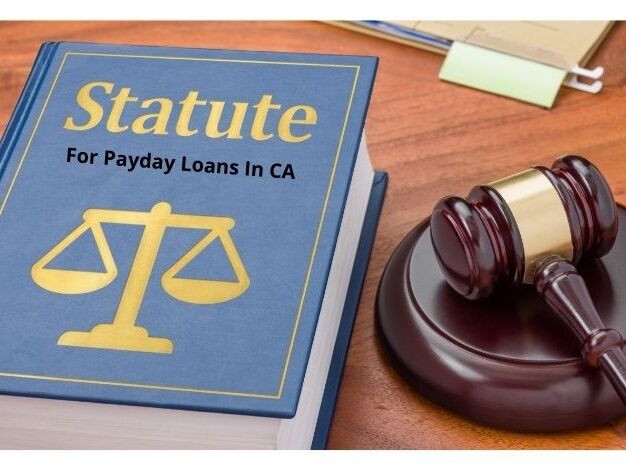Last updated August 2023
**Update**
Assembly Bill 539 passed the Senate and Assembly in September and became Law in 2020. This Bill has changed the entire lending environment in California. AB 539 caps interest rates on all payday loans between $2,500 and $10,000. The interest rate for the loans(which include installment loans and car title loans) has a cap of 36%. Even with this bill, we expect to see more regulations and restrictions added through 2024.
Please remember a few things for this article and others. We’re not attorneys, and we don’t give legal advice. We’re merely looking to give our readers a better understanding of the lending environment.
Various bills working through the California Senate and House should impact California payday and installment loan laws. They would set up a state-controlled database of outstanding loans. The goal is to document and limit the number of payday and installment loans a California consumer can take out. The bill will set a limit of 4 advances a year. Additionally, it will increase the time a consumer has to pay off a short term loan. It would set a minimum of 30 days for every $100 borrowed.
These regulations will establish prudent requirements for borrowers. The goal is to verify that an applicant can pay back a payday advance. It will be interesting to see if any more bills are proposed during the upcoming legislative sessions. Stay tuned for more news about changes to California small dollar lending regulations. These regulations will affect retail payday loan locations in California.
Direct Lender Payday Loan Laws In California
Compared to most states, California has aggressive rules that control rates and terms for online payday and installment loans. Larger companies pass on providing instant payday loans here as other states and jurisdictions make it easier to do business. Most of these companies offer payday loans online, not companies with an office where you can meet someone face to face.
In the last few years, California sanctioned dozens of lenders for not following state regulations. A lender must have an active, deferred deposit transaction law license to provide financing in California. This means unlicensed lenders can attempt to dodge financing laws. Some new regulations about cash advances will be added to the books as we head through 2023. Check back for updates as we update these new regulations and rules. We recently discussed whether an online lender could sue you for an unpaid payday loan.
Our state claims regulations are in place to protect consumers from getting taken advantage of by a lender. The maximum term for an online payday loan will be 31 days. Lastly, The most a California payday loan company can charge is 10% of the face amount of the check as a fee. These regulations apply to short term cash advances. With this type of financing, the lender holds a consumer’s check. It will be used to debit the borrower’s bank account. Most online bank lenders and credit unions aren’t included in this group. But other finance companies like car title lenders will fall under these regulations.
Installment Loan & Payday loan laws in California are constantly changing!
There are other issues regarding upcoming payday loan law changes in CA. For example, a company can charge no more than one fee if you bounce your monthly payment. A lender can’t offer you a new payday loan as a way to roll over the first amount borrowed. The lender can charge no more fees if you need an extension. As a California resident, you can request and receive all documents that apply to your loan. This applies to loans offered in a brick and mortar office and to loans offered online as well.
All reputable companies will need a California Finance Lenders License issued by the DBO. Lenders must limit lending to active duty military members and their close families. Licensed lenders must always abide by the Military Lending Act. This Federal regulation states that no lender can offer a loan with interest rates above 36%. This regulation applies to payday, installment, and auto title loans. This law applies to you if you’re an active duty service or the spouse of a family member of someone on active duty.
Payday Loan Laws & Updates To Expect With Unsecured Loan Companies & Tribal Lenders
Also, consider there have been legal challenges brought that challenge the rights of tribal lending companies to offer California payday loans. A California Supreme Court Decision sets current case law on tribal lending from 2017. This landmark ruling declined to extend tribal sovereign immunity to lenders. Because of that, we saw an increase in companies that offer payday loans in Los Angeles, San Diego, San Jose, and other large cities in CA. The court found tribal business operations were not part of the tribe and should not have immunity.
Remember, these regulations apply to online companies that offer installment and payday loans in California. Most reputable lenders will honor these guidelines. But, there are always companies that provide online funding. Some of these lenders will attempt to get around these regulations. Some California payday loan lenders claim they’re not headquartered in the state. As such, the rules and regulations implemented by the state are not applicable. Also, some lenders feel these regulations aren’t an issue. Because they either live on tribal land or they’re based offshore. Check this page at least once a month for updates on pending legislation. The payday loan industry in California is changing on a fast scale. We can expect further changes and additions to rules governing payday loans in California. We will update the payday loan rules and regulations when new issues arise.
